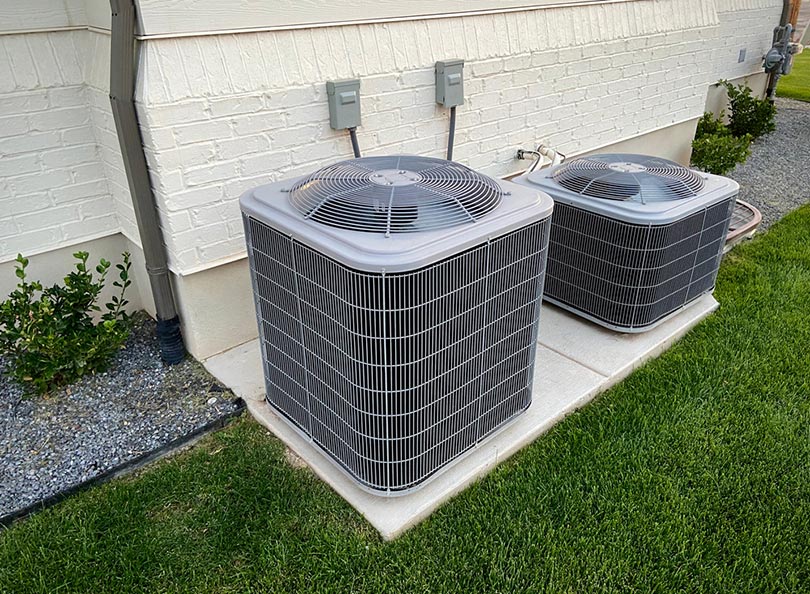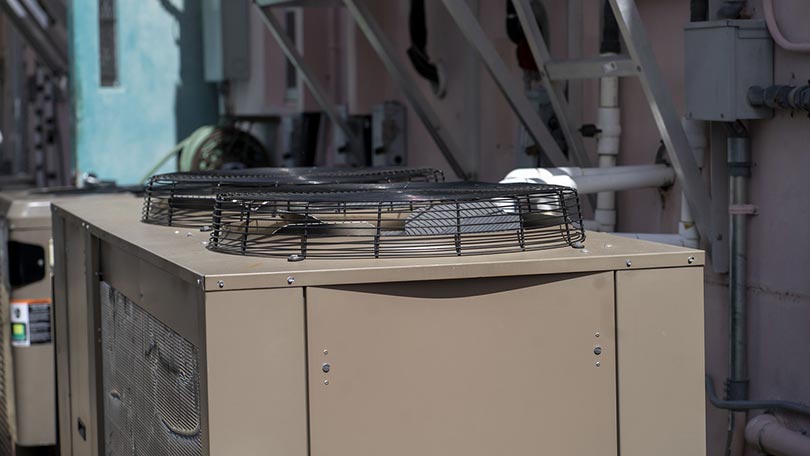10 HVAC Myths and Misconceptions – It’s Time to Stop Believing These!
-
Ed Malaker
- Last updated:

If you are a new homeowner, your HVAC systems might be causing you sleepless nights, as these systems tend to be expensive and don’t lend themselves much to DIY repairs. Or do they? There are plenty of myths and misconceptions about these units that can lead you down a dark path of anxiety, frustration, and confusion. If this sounds like your situation, keep reading as we look at several popular guidelines to see if they are true.
The Top 10 HVAC Myths and Misconceptions
1. If It Isn’t Broken, Don’t Fix It
Almost all of us have heard the saying, “If it ain’t broke, don’t fix it.” While this might be good advice for a child who likes to take things apart to see how they work, it’s not suitable for us homeowners. This type of idea can prevent people from scheduling routine maintenance because they aren’t hearing any noises or having any problems. However, performing regular maintenance on your furnace1 and other systems is the single best thing that you can do to ensure the longevity of these components. A licensed HVAC technician will check your vents, pressure, airflow, filters, and more to ensure that your system is operating properly.

2. I Can Determine the Proper HVAC System for My Home
Many new homeowners mistakenly believe that they can determine the proper HVAC system for their home by doing measurements and calculations and watching YouTube videos. While these techniques might get you in the ballpark so you can set up a budget and make educated decisions about related components, it’s best to leave the final say about what type of HVAC system should be installed in your home to a licensed technician. Many other factors can affect the type of system that you need, including the insulation and sunlight unique to your situation.
3. Closing Vents Improves Energy Efficiency
One of the most difficult myths and misconceptions to explain to someone is the belief that closing vents in unused rooms will improve overall efficiency because you won’t need to heat or cool those rooms. However, an HVAC system has a balanced design, and there’s a great deal of force in the airways. Closing a vent can put strain on the seal around it. It can also put additional pressure on the other vents in your home. Over time, the pressure can wear out the seals, causing air leaks and requiring expensive maintenance, making your home less energy efficient. Most experts recommend closing the vents no more than 50% to 75% to keep them working properly.
4. You Only Need to Change Your Filter Once Per Year
One common misconception is that you’re good for the year when the HVAC technician changes your filter on your yearly checkup. Filters that contain a large amount of debris put additional strain on your HVAC system, and they can degrade your air quality. Many people are surprised to learn that their system will be more efficient if they change the filters more regularly, especially if they live in a city with excess air pollution or a dusty environment. Most experts recommend visually inspecting your filters every month and changing them when they look dirty.
5. Larger HVAC Units Work Better
Many people will choose a larger system than needed in the false belief that it will work better. Larger HVAC units can move more air, but they also require more power to run and are more expensive, so choosing the correct size is the best option.

6. The Location of Your Thermostat Doesn’t Matter
Many people don’t realize that the thermostat contains a thermometer that operates the furnace and air conditioning units. Therefore, its location in your home is key to creating the proper environment and maximizing efficiency. Placing the thermostat too close to a radiator will cause it to detect heat and shut down the furnace before the rest of the home is warm. Similarly, placing it in a drafty location may cause the furnace to run too long.
7. Closing Doors Will Save Energy
While closing doors won’t damage the seals around the vents, it can cause your system to work harder, increasing your operating costs. Leaving doors open will allow the system to function properly to maximize efficiency.

8. An Air Handler Is a Furnace
One misconception that’s easy to understand is the belief that an air handler is a furnace. Both look similar and if you have one, you probably don’t have the other. In both cases, it’s the component responsible for heating your home. However, these two devices operate quite differently. Air handlers can also cool your home, while the furnace cannot. A furnace contains an internal combustion chamber that burns fuel to boil water, and heating radiators to warm the air in your home.
9. You Should Cover the Air Conditioning Unit During the Winter
It might seem smart to cover your air conditioning unit during the winter months to protect it from ice and snow. However, doing so might not be a good idea. Covering the air conditioning unit can trap moisture inside, which can cause internal damage and rust. While moisture will get in an uncovered machine, it will dissipate quicker, causing less damage. Another problem with covering the air conditioning unit is that it can attract rodents and other small lifeforms that might create a nest inside, causing damage to internal components.

10. Turning the HVAC System Off Will Consume Less Energy
One myth is that turning off the HVAC system will help save energy. But an HVAC system maintains maximum efficiency by keeping the temperature consistent. Shutting down the system and letting the temperature deviate too far from the norm will cause the system to use more power to return things to normal than it would have used to keep them the same.
How Can I Save Money on My HVAC System?
Upgrade Your Windows
Upgrading your windows can be a great way to save costs on your HVAC system. Unfortunately, many people have old windows that allow too much heat to escape. They can also be drafty, enabling air to circulate around the window’s frame and enter your walls or leak directly into your living environment.
Upgrade Your Insulation
If their home feels cold or seems to cool down quickly once the furnace shuts off, you can upgrade your insulation to help keep the heat inside your home longer. Installation is often inexpensive, and you can usually install it yourself if you like tackling DIY projects.
Thermal Curtains
If you have upgraded your windows but still feel that too much cold air is penetrating your home, you can use thermal curtains to help provide an extra barrier and reduce your energy costs. Another benefit of thermal curtains is that they help block sunlight from entering your home, which can help make your air conditioning units more efficient.
Summary
Unfortunately, there are many myths and misconceptions about HVAC systems, which can result in higher energy costs and a greater strain on your system. If you want to save costs, hire a professional to help you design and install your system. Then, learn how to use it correctly so you don’t accidentally close doors that you should leave open or make other simple mistakes that can cost money over time. If you feel that your system is not operating correctly, check the installation and other potential problems, like old window frames, instead of adjusting the HVAC system. Always call a professional before you make any changes.
Featured Image Credit: dotspencer, Shutterstock
Contents

